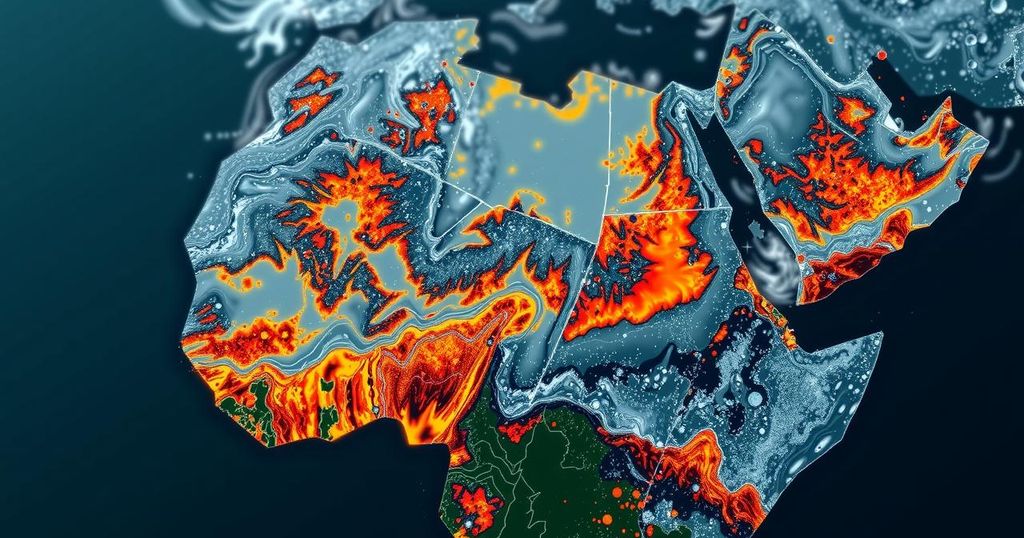Climate Change Intensifies Flooding in Africa, Scientists Warn

A team of scientists has linked devastating rainfall in flood-affected regions of Africa to climate change, indicating that such extreme weather events may become annual occurrences if global warming progresses. The floods in 2023 have resulted in severe casualties and displacements. Experts urge the international community to provide financial support to address these challenges.
Recent analyses conducted by a group of international scientists have established that the severe rainfall experienced in regions of Cameroon, Chad, Niger, Nigeria, and Sudan this year has been exacerbated by anthropogenic climate change. According to the World Weather Attribution (WWA), global warming has intensified the seasonal precipitations, resulting in an increase of approximately 5-20% in rainfall across the Niger and Lake Chad basins. This alarming trend suggests that such intense rain events could become commonplace if global temperatures continue to rise. Izidine Pinto, a researcher at the Royal Netherlands Meteorological Institute, acknowledged that “Spells of heavy summer rainfall have become the new normal in Sudan, Nigeria, Niger, Cameroon, and Chad,” highlighting the dire implications for these regions. The United Nations Office for the Coordination of Humanitarian Affairs (OCHA) has reported that this year alone, the floods have claimed the lives of around 1,500 individuals and displaced more than one million residents in West and Central Africa. Additionally, the rainfall has inundated dams in Nigeria and Sudan, exacerbating the tragedy. The WWA warns that should global warming reach 2 degrees Celsius (3.6 degrees Fahrenheit) – a scenario projected to arise as early as the 2050s – such intense downpours could become an annual occurrence in these already vulnerable areas. In light of this urgency, there is a pressing need for increased investment in early warning systems and upgrades to existing dams. Joyce Kimutai, a researcher at the Centre for Environmental Policy at Imperial College London, emphasized the inequity of the situation, noting, “Africa has contributed a tiny amount of carbon emissions globally, but is being hit the hardest by extreme weather.” She underscores the responsibility of the forthcoming COP29 climate talks in November, urging wealthy nations to provide substantial funding to support affected regions.
The increasing frequency and intensity of extreme weather events globally have been linked to human-driven climate change, particularly manifesting as severe rainfall and flooding in vulnerable regions. West and Central Africa, featuring nations such as Cameroon, Chad, Niger, Nigeria, and Sudan, are experiencing drastic changes in their climate patterns. These changes are not only due to global temperature rises but also result in devastating impacts on human lives and livelihoods. Understanding the science behind this phenomenon is critical to developing effective strategies to mitigate the resultant risks and enhance resilience for the affected populations.
In conclusion, the intensified rainfall contributing to catastrophic flooding in West and Central Africa has been closely linked to climate change caused by human activity. With thousands of lives lost and millions displaced, the urgency for action is clearer than ever. The impacts of climate change disproportionately affect African nations, which bear minimal responsibility for carbon emissions yet experience the most severe consequences. Investment in infrastructure and international support is essential as the world approaches critical discussions at COP29.
Original Source: www.cnbcafrica.com






